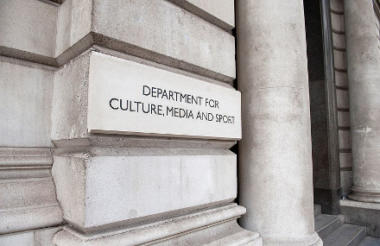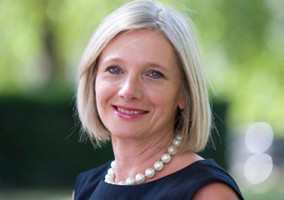The government showed a “notable opaqueness” in some decision-making over the allocation of emergency funding to charities and spent £2m on consultants, parliament's Public Accounts Committee (PAC) said today.
MPs further criticised the Department for Digital Media and Sport (DCMS) for not having a clear idea about how to measure the impact of funding to support charities during the pandemic, in a report, Covid-19: Government Support for Charities, published today.
The committee had set up an inquiry to look at how DCMS had spent the £513m it was allocated from the £750m package of support for charities. PAC has now made five recommendations for the government.
PAC held one virtual evidence session with representatives from DCMS, the National Lottery Community Fund and the Charity Commission. It also received dozens of written submissions from charities about their experiences and the pressures the sector is facing.
Its inquiry followed on from a National Audit Office report which highlighted that some money had been awarded to organisations where officials had initially been unsure that the applicant was eligible.
PAC said that the lack of transparency about decision-making, deviation from formal processes and inadequate attention paid to impact was part of a worrying trend across government.
The committee acknowledge that DCMS had been trying to distribute funding quickly.
Meg Hillier, Labour MP and chair of the committee, said: “The PAC has seen these twin themes recur throughout the policy response to Covid, especially when it comes to disbursing funds. One is a worrying smoke thrown up around award decisions, with growing instances of the official processes overridden without adequate explanation.
“The other is the focus on inputs not outcomes, on getting money spent – including exorbitant amounts on consultants - without factoring or measuring the impact. I fear one clear impact is the steady erosion of taxpayers’ trust that their money is being well spent in this national emergency.”
Involvement of special advisers
PAC is concerned about DCMS’s admission that special advisers were involved in discussions about funding allocations, before advice went to ministers.
The report says: “The level of influence exerted by special advisers and their involvement at the point of decision making appears to go beyond what we have previously seen as members of this committee in our previous ministerial roles.”
It highlights the example of lowest ranking bids to the Community Match Challenge Fund receiving funding, and said the department is “unable able to adequately explain” how this happened.
£2m spent on consultants
Accountancy firm, PwC was paid £2m by DCMS to perform due diligence on applications to the NLCF.
PAC highlights that NLCF is an experienced grantmaker. “But the department paid PwC £2m for specialist support on data collection, analytical support, and due diligence,” the report says.
It adds: “The department asserts that the support form PwC was necessary due to the fast paced and pressured environment it was operating in but has no evidence of the added value it received from these additional checks.”
‘Doesn’t understand the financial health of the charity sector’
The PAC report draws a number of comparisons with funding targeted at cultural organisations and the charity sector, with the former receiving “nearly three times more funding” than the latter.
The committee finds that DCMS “cannot yet demonstrate that it fully understands the financial health and resilience of the charity sector or whether further government financial support will be necessary”.
There are mixed views on the overall state of the sector’s finances, the committee heard. Its report says: “The department asserts that fundraising activity has increased over the last year with rapid growth in philanthropy and fundraising.”
However, the Charity Commission told the committee that “financial resilience in the sector is worsening”. It says that the number of charities with incomes over £500,000 which have negative or no free reserves has more than tripled from 9% in April 2020 to 28% in March 2021.
The Commission adds that the number of auditor reports relating to matters of material significance within the sector had risen by 25%.
Recommendations
MPs say they are not satisfied with some of DCMS’s explanations and has asked the department to respond on a number of specific points.
Within three months PAC wants DCMS to “set out the specific actions it is taking to monitor and understand the financial health and resilience of the charity sector”.
PAC has also asked DCMS to carry out a project to learn lessons about keeping records of how decisions are made, and what involvement special advisers had.
Next PAC wants DCMS to explain in writing how it “judges the value for money” of the contract with PwC.
By December PAC expects DCMS to submit an evaluation of all its funding “ensuring this exercise represents charities that did not receive funding as well as those that did”.
Finally, PAC wants DCMS to “set out the triggers that would prompt it to consider further government financial support to the charity sector”.
DCMS response
Throughout DCMS has insisted that it followed the rules and that decisions were made properly.
Sarah Healey, permanent secretary at DCMS, sent a follow-up letter to the committee after giving evidence, which said: “I am satisfied that civil servants and special advisers at all times followed these codes in the distribution of the Covid-19 Charities Funding and the decisions on funding were made by ministers in the proper way. I can also confirm that the department followed the Cabinet Office Grants Functional Standard throughout the funding package.”
Today a DCMS spokesperson said: “The PAC has rightly recognised that the government acted quickly in distributing unprecedented amounts of vital funding to charities in desperate need at the height of the pandemic.
“The DCMS permanent secretary has confirmed that all decisions on this funding followed proper due process and were in line with the Civil Service Code and the Code of Conduct for Special Advisers. All decisions were made by ministers based on advice from officials and special advisers did not unduly influence this in any way.
“External grant and fund management support allowed the department to meet tight deadlines and safely distribute funds across the full package of support offered.”
Related articles












